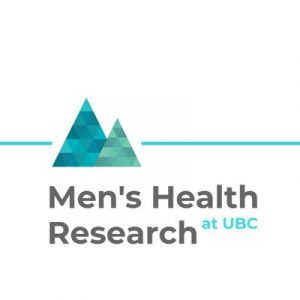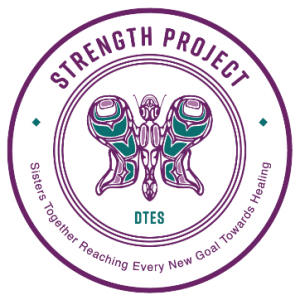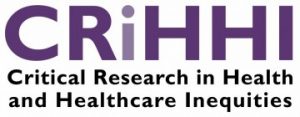Men’s Health Research
 Addressing a range of men’s health issues, MHR strives to make positive differences in the lives of men and their families. Through many multidisciplinary, national, and international collaborations, MHR produced over 30 publications and has had two new funded postdoctoral fellows join the team in 2018. MHR has also been working on the School of Nursing’s first industry grant, conducting a qualitative evaluation of a Canadian hemophilia home-infusion program with plans to publish findings in the New Year.
Addressing a range of men’s health issues, MHR strives to make positive differences in the lives of men and their families. Through many multidisciplinary, national, and international collaborations, MHR produced over 30 publications and has had two new funded postdoctoral fellows join the team in 2018. MHR has also been working on the School of Nursing’s first industry grant, conducting a qualitative evaluation of a Canadian hemophilia home-infusion program with plans to publish findings in the New Year.
Consortium for Nursing History Inquiry
The Consortium serves as a resource for students, faculty, and the wider community to explore and scrutinize nursing and health care’s past. Several doctoral students involved with the Consortium presented their research at conferences in Canada and internationally this summer. Courtney Devane presented a poster on Peer Support in a Mental Health & Addictions Crisis House with Daina Baldwin (PS) at the National Conference on Peer Support 2018 in Calgary. Hrag David Yacoubian presented a paper at the ISIH (In Sickness & in Health) conference at the University of Tasmania in Sydney, Australia, entitled Toward a transnational understanding of humanitarian nursing and another one at the CAHN/ACHN Nursing History conference in Halifax entitled The Globe’s Fundraising Campaign during the Armenian Genocide, Nurse Emma Wood and the Canadian Hospital at Constantinople. Catherine Haney won the Vicky Bach Prize for best student paper at the latter conference for her paper: Experienced, Compassionate, and with a Sense of Humour: Nurses’ work in support of abortion in Canadian free-standing abortion clinics, 1969-1988. In November, Catherine presented a paper at the International Conferenceat the Sorbonne in Paris, France on Abortion in the British Isles, France, and North America since 1800.
Capacity Research Unit
 The Capacity Research Unit is an interdisciplinary team of researchers, staff, students, organizations, and their members working together to address discrimination and inequities in health care and social services. The research conducted through the unit is community-based, with a focus on capacity-building to enhance active participation in research, policy and programming. Dr Vicky Bungay, Associate Professor, Nursing, and scientific director of the unit, is a Canada Research Chair in Gender, Equity and Community Engagement.
The Capacity Research Unit is an interdisciplinary team of researchers, staff, students, organizations, and their members working together to address discrimination and inequities in health care and social services. The research conducted through the unit is community-based, with a focus on capacity-building to enhance active participation in research, policy and programming. Dr Vicky Bungay, Associate Professor, Nursing, and scientific director of the unit, is a Canada Research Chair in Gender, Equity and Community Engagement.
A key program of research within the unit focuses on developing and testing innovative outreach strategies to engage women affected by violence in attending to, and receiving life-sustaining health and social services and building their capacity to navigate complex human service systems including legal, child welfare, health, and housing services. This program of research involves active collaboration and co-learning with multiple stakeholders including women deeply affected by violence, and not-forprofit and public service sectors. The current project (2017-20), funded by the Social Sciences and Humanities Research Council (SSHRC) and the Vancouver Foundation, is piloting an innovative outreach model in Vancouver’s Downtown Eastside (DTES). The project’s community advisory committee is comprised of women affected by violence (experiential experts). They have named the project STRENGTH (Sisters Together Reaching Every New Goal Towards Healing), and have guided the work from the beginning. The next phase will be a multi-site intervention study to test the model in different contexts and populations in four sites, within three provinces across Canada.
capacitycentre.ubc.ca
support.ubc.ca/projects/capacity-research-unit
CRiHHI
Critical Research in Health and Healthcare Inequities
 CRiHHI received over $1,000,000 in funding in 2018. Among the highlights of the year is the story of Dr Colleen Varcoe’s presentation in Rio de Janiero.
CRiHHI received over $1,000,000 in funding in 2018. Among the highlights of the year is the story of Dr Colleen Varcoe’s presentation in Rio de Janiero.
SARAVYC
Stigma and Resilience Among Vulnerable Youth Centre
 This has been a productive year for SARAVYC! November 1st marked the launch of their second Canadian Trans and Non-Binary Youth Health Survey. The first survey (completed in 2013-2014), included over 900 trans and nonbinary youth participating from across Canada, and established some baseline statistics with regards to their health and well-being. These results highlighted the significant health and social challenges that trans and non-binary youth face, as well as the importance of community and family support. The new survey will provide data to improve the present state of knowledge about trans and non-binary youth, as well as enable an analysis of changes over the last five years. The survey will be open for the next six months, and can be taken here: bit.ly/SARAVYCSurvey.
This has been a productive year for SARAVYC! November 1st marked the launch of their second Canadian Trans and Non-Binary Youth Health Survey. The first survey (completed in 2013-2014), included over 900 trans and nonbinary youth participating from across Canada, and established some baseline statistics with regards to their health and well-being. These results highlighted the significant health and social challenges that trans and non-binary youth face, as well as the importance of community and family support. The new survey will provide data to improve the present state of knowledge about trans and non-binary youth, as well as enable an analysis of changes over the last five years. The survey will be open for the next six months, and can be taken here: bit.ly/SARAVYCSurvey.
This fall, SARAVYC was awarded a MSFHR Reach Award to support knowledge translation for their research on health inequalities and protective factors for ethno-culturally diverse lesbian, gay, and bisexual youth. Informed by feedback from our East Asian Community Advisory Group, SARAVYC is partnering with Options for Sexual Health to host in-person and livestreamed informational events for East Asian families, focused on sexual health and supporting LGBTQ+ youth. Plans are underway for a similar collaboration with local South Asian community members, as well as reporting of findings from analyses of health outcomes for Indigenous LGB and Two-Spirit youth.
SARAVYC also published research findings from a number of their projects this year. Two papers from their systematic review of international literature on sexually exploited youth were published in Child Abuse & Neglect and the Journal of Child Sexual Abuse. Results from their analysis of substance use among Massachusetts youth found that while overall rates of substance use among youth are decreasing, there remains a stark contrast between LGB youth and their heterosexual peers. SARAVYC also published the results from their evaluation of Out in Schools’ role in reducing anti-LGBTQ+ prejudice and bullying among BC students. All of these publications are available at: saravyc.ubc.ca.
GERO
Gerontological Education Research and Outreach
Founded in 2011 by Drs Jennifer Baumbusch and Alison Phinney, GERO is committed to advancing the nursing care of older adults through nursing education, research, and by improving knowledge generation and uptake among a community of practice partners. It supports social inclusion, or “social citizenship” of people living with dementia, providing meaningful engagement in the world around them, and partnering with grassroots — people who have dementia and wish to advocate for others in their position.
Highlights of 2018 include Alison Phinney and team’s award of $600,000 by the Canadian Institute of Health Research funding for a project entitled, Putting Social Citizenship into Practice: Reducing Stigma and Promoting Social Inclusion of People with Dementia. The purpose of this fouryear study is to learn how communities can reduce stigma and promote social inclusion of people living with dementia. They are creating a team of academic researchers, people with dementia, and community partners who will work together, using the approach of “participatory action research,” to meet two goals:
- create a useful definition of “social citizenship” based on the
experiences and opinions of people with dementia; and - show how this definition can provide practical guidance for
communities to reduce stigma and promote social inclusion
of people with dementia.
Study outcomes will include a set of practical guidelines to provide direction for communities to reduce stigma and promote social inclusion of the growing numbers of people with dementia. It is expected to shape policy and decisionmaking at organizational and municipal levels. Including people with dementia in a full participatory role as co-researchers is groundbreaking in Canada, study results are likely to be influential for health and social care planning, and for further research.


